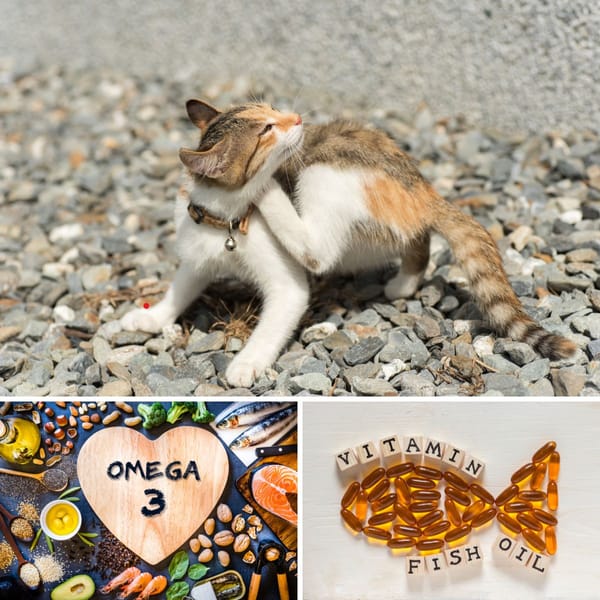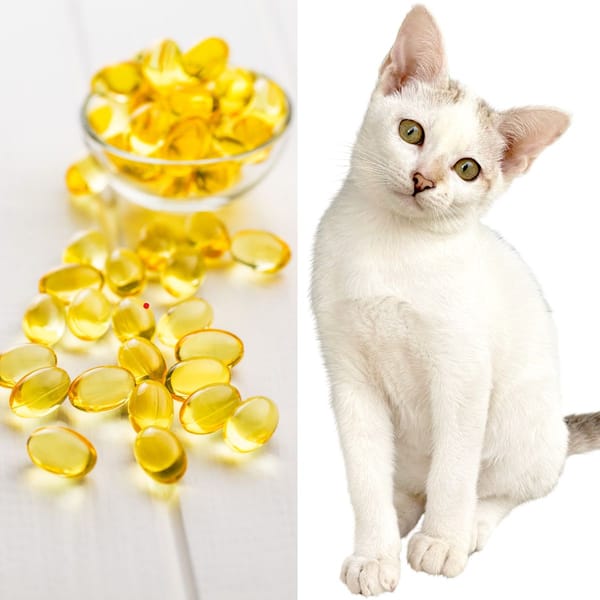Key Takeaways:
- Learn the correct method to administer probiotic powder to your dog for optimal digestive health.
- Understand the importance of choosing the right probiotic strain for your dog's specific health needs.
- Discover the potential health benefits of incorporating probiotics into your dog's diet.
Probiotics for dogs have become a significant focus for pet owners looking to maintain and improve their furry friends' health. These beneficial bacteria play a crucial role in promoting a healthy balance within the digestive tract, supporting immune health, and potentially alleviating issues like irritable bowel syndrome and food allergies. But how do you give a dog probiotic powder effectively? This article will guide you through the process, ensuring your dog reaps all the health benefits probiotics have to offer.
Understanding Probiotics for Dogs
Probiotics are living organisms that, when ingested in adequate amounts, provide health benefits to the host. In dogs, these beneficial microorganisms can help maintain a healthy balance of gut flora, aiding in digestion and bolstering the immune system. Probiotic supplements for dogs often contain certain strains of bacteria commonly found in the canine gut, such as Lactobacillus acidophilus and Bifidobacterium animalis.
The Importance of Probiotic Strains
Not all probiotics are created equal. Different strains offer various health benefits, and it's essential to choose a probiotic formula tailored to your dog's specific needs. For instance, some strains may be more effective for dogs with skin conditions, while others target gastrointestinal issues. Always consult with your vet to determine the right probiotic for your dog's health.
Choosing the Right Probiotic Powder
When selecting a probiotic powder for your dog, look for products that list live cultures, have a clear expiration date, and are free from artificial sweeteners and other medications that could harm your dog. The best probiotics will have a guaranteed shelf life, ensuring the bacteria are alive and able to provide the potential benefits.
Preparing to Administer Probiotic Powder
Before giving probiotics to your dog, it's crucial to read the instructions on the product label. Some probiotic powders may require refrigeration to maintain the viability of the live bacteria, while others are shelf-stable. Measure the appropriate dose as recommended for your dog's size and health condition.
Mixing Probiotic Powder with Dog Foods
One of the simplest ways to give your dog probiotic powder is by mixing it into their food. Ensure the dog's food is at room temperature to preserve the live cultures in the probiotic. Sprinkle the recommended dose over the dog's food and mix it in thoroughly to encourage your pet to ingest the entire amount.
Offering Probiotic Treats as an Alternative
If your dog is finicky or you're looking for a more convenient option, probiotic treats may be a suitable alternative. These treats are formulated with probiotic bacteria and are often more palatable for dogs. However, ensure that the treats contain the right probiotic strain and the correct dosage for your dog's needs.
Monitoring Your Dog's Response
After introducing probiotics into your dog's diet, observe any changes in their digestive health, immune response, or overall well-being. Some dogs may experience an adjustment period with minor digestive upset, but this should resolve as their system adapts to the beneficial bacteria.
Incorporating Probiotics into Your Dog's Daily Routine
Incorporating dog probiotics into your furry friend's daily routine can be a seamless process that contributes significantly to their overall well-being. As pet parents, it's essential to understand that consistency is key when it comes to maintaining your dog's gut health. By adding a probiotic supplement to your dog's food each day, you're not only helping them digest food more efficiently but also fostering the growth of beneficial flora in their digestive system. This daily ritual can lead to a noticeable improvement in their vitality and zest for life.
Moreover, the regular use of dog probiotics can help in the production of short-chain fatty acids, which are crucial for the health of your dog's body. These fatty acids serve as an energy source for the cells lining the gut and play a role in modulating the immune system. By making probiotics a staple in your dog's diet, you're supporting their ability to fight off bad bacteria, potentially reducing the risk of an upset stomach and enhancing their overall immunity.
Probiotic Powder Dosage for Dogs
When considering the addition of probiotic powder to your dog's food, it's crucial to get the dosage right to ensure your dog's health is supported without causing any adverse effects. The appropriate dosage can vary depending on the size of your dog, the specific probiotic strains, and the concentration of the probiotic formula. Generally, manufacturers provide a recommended dosage on the product packaging, which is a good starting point. However, it's always wise to consult with your vet, as they can tailor the dosage to your dog's unique health needs and the specifics of their diet.
It's also important to introduce probiotics gradually to your dog's body to avoid any potential digestive upset. Start with a smaller dose than recommended and observe your dog's response over several days. If your dog tolerates the probiotics well, you can slowly increase the dosage to the suggested level. Consistency is key when it comes to incorporating probiotics into your dog's daily routine, so aim to mix the powder into your dog's food at the same time each day for the best results.
Enhancing Probiotic Efficacy with Prebiotics
To maximize the benefits of probiotics for your dog's gut health, consider the synergistic role of prebiotics. Prebiotics are non-digestible fibers that serve as food for the beneficial bacteria in your dog's gut. By including prebiotic-rich ingredients in your dog's food, you can help the probiotics flourish and maintain a balanced gut microbiome. Some dog foods are already formulated with prebiotics, but you can also add natural sources such as inulin, fructooligosaccharides (FOS), or certain types of fiber like beet pulp and chicory root to your dog's diet.
When selecting dog food or supplements that contain both probiotics and prebiotics, look for terms like "synbiotic" on the label, which indicates the presence of both components. Remember, the goal is to support your dog's health holistically, so a balanced diet that includes a variety of nutrients is essential. Always introduce new foods or supplements slowly and monitor your dog's health, adjusting their diet as needed to ensure they're receiving the full benefits of both probiotics and prebiotics.
The Connection Between Probiotics and Dental Health in Dogs
Did you know that your dog's oral health could also benefit from the right probiotic supplement? It's not just about an upset stomach or digestive system health; probiotics can play a role in combating bad breath in dogs. Bad breath is often a sign of an imbalance in the oral microbiome, where harmful bacteria outnumber the good ones. By introducing dog probiotics, you can help restore this balance, promoting a healthier mouth environment for your furry friend.
Furthermore, the beneficial bacteria from dog probiotics can help to break down food particles left in the mouth, which, if left unchecked, can contribute to plaque buildup and gum disease. As pet parents, when you choose a probiotic supplement for your dog's food, you're taking a proactive step towards maintaining their dental health, which is an integral part of your dog's overall health. Remember, a healthy mouth is just as important as a healthy gut when it comes to your dog's body and well-being.
The Role of Natural Probiotics
In addition to supplements, natural probiotics can be found in fermented dog foods and certain dog-friendly human foods. Incorporating these into your dog's diet can provide additional sources of good bacteria to support their gut microbiome.
Probiotics and Digestive Health
Probiotics can aid in the breakdown of food, allowing for better nutrient absorption. They also help produce short-chain fatty acids, which are essential for a healthy intestinal tract. For dogs with digestive issues, probiotics may help restore a healthy balance and alleviate symptoms.
Probiotics and Immune Health
A significant portion of the immune system is located in the gut. By promoting a healthy balance of gut flora, probiotics can enhance the immune response, potentially reducing the risk of infections and allergic reactions.
Addressing Bacterial Imbalance
If your dog suffers from bacterial overgrowth or a bacterial imbalance in the GI tract, probiotics can help restore the natural balance of friendly bacteria, combating harmful bacteria and supporting digestive systems.
Probiotics for Specific Health Conditions
For dogs with conditions like irritable bowel syndrome or food allergies, certain probiotic strains can provide targeted support, helping to manage symptoms and improve quality of life.
The Safety of Probiotics for Dogs
Probiotics are generally considered safe for many dogs. However, it's essential to discuss probiotic use with your vet, especially if your dog has a compromised immune system or is taking other medications.
When to Consult Your Vet
Before starting any new supplement, including probiotics, consult with your vet. They can provide guidance on the best probiotics for your dog's unique health needs and advise on any potential interactions with existing treatments.
Summary
Administering probiotic powder to your dog can be a straightforward process that yields numerous health benefits. By choosing the right probiotic strain, properly mixing it with your dog's food, and monitoring their response, you can support your dog's digestive health, immune system, and overall well-being. Always consult with your vet to ensure the safe and effective use of probiotics for your dog.
FAQ Section
Q: Can all dogs take probiotic powder? A: While most dogs can benefit from probiotics, it's essential to consult with your vet before starting any new supplement, especially if your dog has health issues or is on medication.
Q: How long does it take for probiotics to work in dogs? A: The effects of probiotics can vary. Some dogs may show improvements in a few days, while others might take a few weeks. Consistent use is key to seeing benefits.
Q: Can I give my dog human probiotic supplements? A: It's not recommended to give dogs human probiotic supplements as they may contain strains and dosages not suited for canine digestive systems. Always choose probiotics formulated specifically for dogs.







